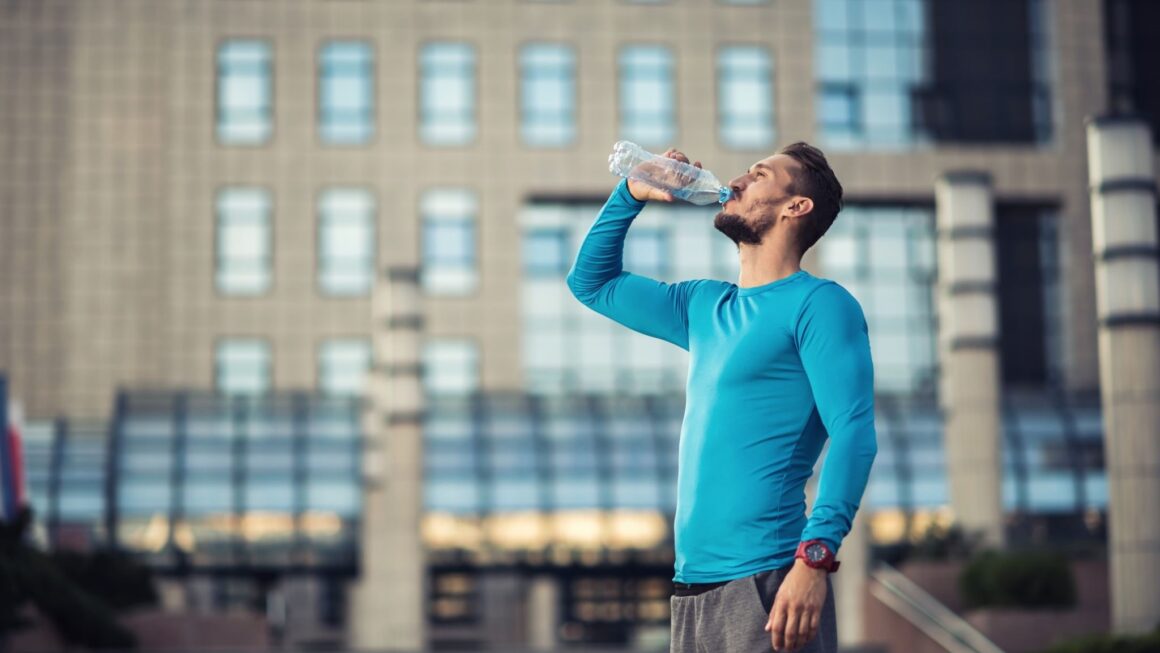As summer sets in and the temperature rises, hydration becomes a point of interest for all who participate in outdoor physical activities. Active individuals should take special precautions during hot summer months to ensure that dehydration does not compromise the body’s performance.
Here are a few general guidelines to consider regarding hydration and physical activity.
Before Exercise:
At least four hours before exercise, individuals should drink five to seven milliliters per kilogram of body weight (mL/kg) of water or sports drink. For example, athletes weighing 100 pounds (45.5 kg) should drink 200 – 300 mL of liquid before exercise. As a reference point, eight ounces of liquid is about 240 mL. As the weight of an individual increases, the fluid recommendation also increases.
During Exercise:
For events lasting less than an hour, water is an appropriate beverage to consume throughout. Fluid replacement during exercise is specific to the individual.
*Refer to the American College of Sports Medicine’s Position Stand for recommendations specific to body size, sweat rates, type of work, etc. Generally, individuals should create customized fluid consumption plans that prevent body weight reduction greater than 2% from baseline weight. For example, if an athlete weighs 100 pounds (45.5 kg) before exercise, they should drink at least enough fluids to ensure their body weight does not go below 98 pounds.*
For events lasting longer than an hour, sports beverages are an appropriate beverage to consume. However, fluids that are too high in carbohydrate content should not be consumed. Fluids containing 4 – 8 percent carbohydrate and 250 mg of sodium (salt) are preferred.
*For all events (both long and short), aim to drink 4-8 ounces every 15-20 minutes; small but consistent fluid replacement will help avoid uncomfortable GI distress. To determine the percent carbohydrate in sports drinks, look at the nutrition label on a sports drink and complete this short math formula. Divide the total carbohydrates (g) by the serving size (mL) times by 100, and the solution will be the percent carbohydrate.
__Total Carbs (g)/__ x 100 = % carbs _ 14 g__ x 100 = 5.8% carbs
Serving Size (ml) 240 mL
After Exercise:
If time permits, the athlete should consume normal meals and beverages (with adequate electrolytes) to restore normal hydration. Those who need rapid and complete recovery from excessive dehydration can drink about 1.5 liters (L) of fluid for each kilogram lost body weight. For example, an athlete who loses two pounds (0.9 kg) can drink 1.36 L, or about 46 ounces, of fluid.
Stay hydrated this summer!!
References:
Sawka, M., Burke, L., Eichner, E., Maughan, R., Montain, S., & Stachenfeld, N. (2007). Exercise and fluid replacement. Medicine and Science in Sports and Exercise, 39(2), 377-390. Retrieved from http://journals.lww.com/acsmmsse/Fulltext/2007/02000/Exercise_and_Fluid_Replacement.22.aspx
Source: https://www.usada.org/athletes/substances/nutrition/fluids-and-hydration/
-Updated 6/28//2024 by Alex Gawel
-Original Article date by Becca Bush – 5/2013
Becca Bush holds a Master of Kinesiology degree from Boise State University and a Bachelor of Science degree in Exercise Science from Southern Utah University. She holds a professional certification from the National Strength and Conditioning Association as a Certified Strength and Conditioning Specialist. She has worked in both sports performance and corporate wellness settings. Among her clients are world champion BMX athletes, NFL players, Summer and Winter Olympians, and NCAA collegiate athletes. She also trains program managers, software engineers, developers, and other motivated clients with fitness goals.



